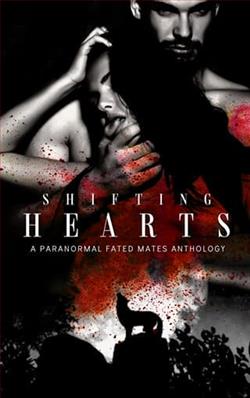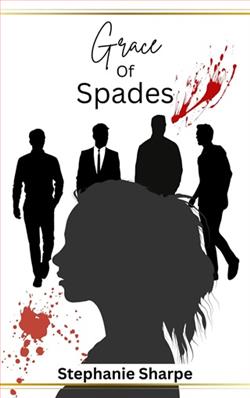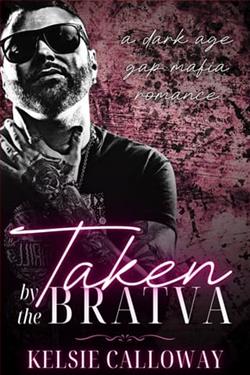Page 40 of Bad Moon Rising (Pine Deep 3)
He was not Mike Sweeney anymore. He was…nothing. A shell casing where inside something that was not Mike Sweeney shifted and groaned. Time was meaningless. If there was air he did not breathe it, or could not feel himself inhale or exhale. If there was light, then either he was blind or could not process the concept of vision. He remained still, just a husk.
He heard another squelching sound and turned quickly, freezing at once into shocked immobility as a huge white stag paced around him in a wide, slow circle. It was snow white, with just a scattering of brick-red flecks on its haunches and eyes that burned with orange fire. The rack was huge, glistening with moisture from the damp air. It moved slowly, looking at him with calm intensity. Mike knew that animal, had seen it once before, that night on the road when it had stood between him and the section of cornfield where a car had gone off the road and plowed itself deep into the field. Mike had wanted to check it out, to see if anyone had been hurt, but this deer—an albino stag—had come out of the night and had stood between him and the wreck, barring his way. With all that had happened later that night, and all that had happened since, Mike had barely remembered the animal until now, and yet here it was.
But where was here?
Mike turned his head and saw that he stood on a gravel driveway leading up to the battered hulk of an abandoned house. Above the house the sky was bruise-blue fading to blackness in the distance. Lightning burning continuously around him, charging the air with ozone, but there was no thunder—just the constant strobe-flicker of lightning above and beyond the house. It was a house he knew, though when he had seen it the shutters had been freshly painted and secure, not hanging from rusted hinges; the windows had been whole, not yawning like jagged mouths, dusty gray on the outside of the each broken pane and ink black inside the maw. On this house the shingles had been shed like scabs from old wounds, and the door hung twisted, sagging down to a porch whose boards had all buckled and warped.
Aware that the stag was watching him, Mike turned away from the house, feeling and hating the deadness of the place. He looked down a wet farm road to where a barn had stood, but it was just a charred frame from which the last few tendrils of smoke curled without enthusiasm. Beside and beyond the burned-out barn were cornfields whose leaves were pot-holed by insects and whose corn hung fat and pendulous, swollen with disease and rippling with maggots. Strangely, the air around him suddenly felt calmer and he thought he heard the blend of musical notes as some unseen hand fanned down over the strings of a guitar. It came from behind him, where the stag had stood, and Mike turned quickly back, and his mouth opened in a soundless “O. ” The stag was gone, antlers, dark spots, footprints, and all.
“You the one,” said a voice that seemed to come from the middle of the air. It was deep, soft, flavored with a Southern accent. “You the one we all got to pay close mind to now, you know that?”
Mike didn’t know where his mouth was or how to make thought into sound. He tried to move but felt himself frozen in place.
“Go ahead, son…you can speak. ” The voice now came from behind him. He heard the sound of fingers lightly strumming guitar strings and the sound was so soothing, so…safe.
Just like that, Mike could. Cool air rushed into his mouth and down into his lungs. “What’s going on?” he blurted.
“You dreaming, young son. You lost in the dreamworld, just like me. ”
Mike braced himself to fight the immobility, but when he tried to turn it was easy; all restrictions were gone. He turned to see a black man in a dirty suit sitting on the top step of a flight of wooden stairs that led to the big wooden porch of the old farmhouse. The man’s skin was dark but ashy-gray and his hair was styled in an old-fashioned Afro, nappy with dirt and rainwater. The man smiled at him, and though his face was kindly his eyes were unblinking and covered with a thin film of dust.
“What the hell’s going on?” Mike demanded, angry and confused. “Who are you?”
The man picked out a couple of notes with his long fingers; on the forefinger of his left hand was a glass slide made from the neck of a whiskey bottle, and he drew this down the neck of the guitar to turn the notes into a wail.
“Who are you?” Mike asked again, his tone wavering between demand and plea.
“I ain’t hardly nobody no more, but you can call me Mr. Morse. ”
“I don’t understand this. I don’t understand what’s going on. How’d I get here? I was at the hospital…at least I think I was…”
“You was…and you still is. This ain’t real, Mike, this is all a dream. ” Mr. Morse smiled at him. He had a nice smile, but he looked very sad and tired. “You know what a shaman is, boy?”
“Sure. It’s like an Indian medicine man or something. ”
“Or something, yeah. Well, a shaman would call what we got here a vision, and you’re on a vision quest. ”
“I don’t know what that means. ”
“Yeah, you do, but you don’t know you do. Y’see, Mike, you been having visions for a good long time now. ” He played a few notes, the break of an old Ida Cox tune. “You call ’em dreams, but they are bona fide visions. ”
“How…?”
“You been dreaming about this town just burning itself up, burning down to the ground. ”
“How do you know that?”
“I know,” said Mr. Morse. “And you been having dreams of him. ”
“Who?”
“You know
who. You may not know his name, but his blood screams in your veins, boy. His breath burns in your throat. ” The man stopped playing and leaned forward. “Look here, boy, you got to listen to me real good, because a whole lotta folks are sitting right there on the edge of that knife blade. You go the wrong way, you make the wrong choice…or worse yet, you don’t do nothing, and they all gonna die. ”
“No,” Mike insisted, shaking his head.
“We don’t have to like something to make it so. Believe me, I know. Hell, yes, old Oren Morse he knows. ”















